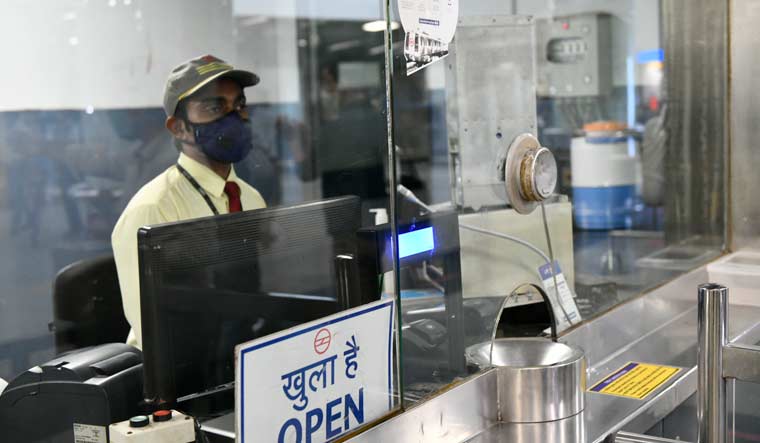Leading medical journal The Lancet has issued an editorial in which it warns against taking “too positive” a spin on the COVID-190 situation in the country, noting that this “not only clouds reality but also hampers vital public health initiatives”.
“Perpetuating unrealistic claims or failing to honestly report negative news creates uncertainty among the public and health-care professionals, discouraging people from taking preventive action or taking public health messages seriously,” the editorial notes.
“India has the expertise in medicine, public health, research, and manufacturing to lead the nation through the COVID-19 pandemic. To capitalise on these attributes, the country's leaders must respect scientific evidence, expert commentary, and academic freedom, and not provide false optimism,” it concludes.
While the article acknowledges that India had a strong and early response to the initial spread of the novel coronavirus, it notes that a relaxation in restrictions accompanied a drastic dramatic increase in case numbers,
India now has the world's fastest growing outbreak of COVID-19 in absolute numbers. Despite the severity of the situation, with over 5.8 million cases and over 92,000 deaths from the virus, the government has continued to highlight its achievements in tackling the crisis from highlighting the high recovery rate to stressing that India’s mortality rate has been kept at a “minimum”. This, as several states further ease restrictions on lockdown and observance of mask wearing and social distancing takes a hit in several of the country’s most-crowded metros.
The article notes that “an atmosphere of fatalism mingled with false optimism” has been created, undermining the “effective use of non-pharmaceutical interventions such as masks and physical distancing”.
The Lancet questions many of the ICMR’s policies through the pandemic, including its decision to support treatment with hydroxychloroquine despite an initial lack of evidence for its efficacy. India was not alone in supporting HCQ at the time—several other countries stood by its use including the United States, Spain and Brazil.
However, later studies found it was associated with other health risks with a large UK-funded trial unable to find any benefits from its use and the Indian Health Ministry recommending against its use in patients with severe cases.
Indian scientists had clashed with The Lancet’s own study based on which a WHO trial of HCQ was paused, calling it ‘shoddy’. In May, the journal retracted a study it had published which claimed HCQ could be linked to a higher risk of death after finding issues with the database cited in it. Following the retraction, The Lancet modified its editorial policies to require more than one author of a paper to access and verify the data it reports.
It also questioned ICMR director general Balram Bhargava’s letter calling for human trials of an indigenously developed vaccine to begin “no later than July 7” in order to ready the vaccine for public use by Independence Day. The Health Ministry later clarified that the letter was “only to expedite duly approved clinical trials without compromising on safety and security concerns“.
On September 25, India had reached testing rates of nearly 15 lakh in a single day, with nearly 7 crore (70 million) tests conducted so far. The national recovery rate was stated at 81.74 per cent. The worst affected states are Maharashtra (with over 12.82 lakh cases), Andhra Pradesh with 6.5 lakh cases, Tamil Nadu with 5.63 lakh cases, Karnataka with 5.4 lakh cases, Uttar Pradesh with 3.7 lakh cases, lakh cases and Delhi with 2.6 lakh cases.
Health Minister Harsh Vardhan on Friday said, “India’s continuously rising Recovery Rate and progressively falling Case Fatality Rate have proven the success of the COVID-19 containment strategy followed by all States and UTs under the dynamic guidance of our Prime Minister Shri NarendraModi. We have successfully ramped up our testing capacity which has touched nearly 15 lakh milestone today with more than 1800 testing labs spread across the country. I have confidence in the scientific developments taking place in the field of treatment and vaccines for COVID-19 and soon India will achieve more success in our fight against COVID-19.”





